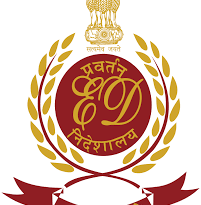NHRC Takes Suo Motu Cognizance of Child’s Critical Condition Following Wrong Blood Transfusion at SMS Hospital, Jaipur
(Judicial Quest News Network)
The National Human Rights Commission (NHRC), India, has taken suo motu cognisance of a grave incident reported at the JK Lon Hospital of the Sawai Man Singh Medical College (SMS), Jaipur, Rajasthan, where a 10-year-old child was transfused with the wrong blood type, leaving the child in critical condition and requiring ventilator support. The incident, which occurred over two separate transfusion sessions on December 5 and 7, 2024, has raised serious concerns regarding the safety protocols followed at the government-run facility.
In response to this alarming report, the NHRC has issued notices to the Chief Secretary and the Director General of Police, Government of Rajasthan, calling for a thorough investigation into the matter. The Commission has also emphasized that this is the second such case of blood transfusion negligence reported at the same medical facility in recent months, further intensifying its concern. A similar incident earlier this year resulted in the death of a 23-year-old patient at SMS Hospital, highlighting systemic issues at the hospital and drawing attention to the critical need for stringent oversight.
The NHRC has expressed that, if the contents of the media report are accurate, the wrongful transfusion represents a severe violation of the child’s human rights, particularly the right to life and health. Medical negligence of this nature not only endangers lives but also undermines the trust patients place in healthcare institutions. The Commission has underscored that such lapses can cause irreversible harm to patients, and this recurring issue at a public healthcare facility is unacceptable.
As part of its intervention, the NHRC has demanded a detailed report from the Rajasthan authorities within two weeks. This report is expected to include several key details: the current health status of the victim child, the status of the FIR (First Information Report) filed in relation to the incident, the actions taken against the responsible medical staff, and any compensation provided to the family of the child. The Commission has made it clear that the investigation should identify all individuals involved in the negligent acts and ensure that appropriate steps are taken to prevent similar incidents from occurring in the future.
The NHRC’s involvement underscores the urgency of addressing healthcare negligence in the country and its commitment to safeguarding the fundamental rights of individuals, particularly the right to life and health, within public healthcare systems. The Commission’s proactive approach aims to ensure accountability and prompt action to avoid further harm to vulnerable patients in the future.
This case serves as a stark reminder of the need for stringent safety protocols in healthcare institutions and the importance of robust monitoring systems to prevent tragic incidents like this.



